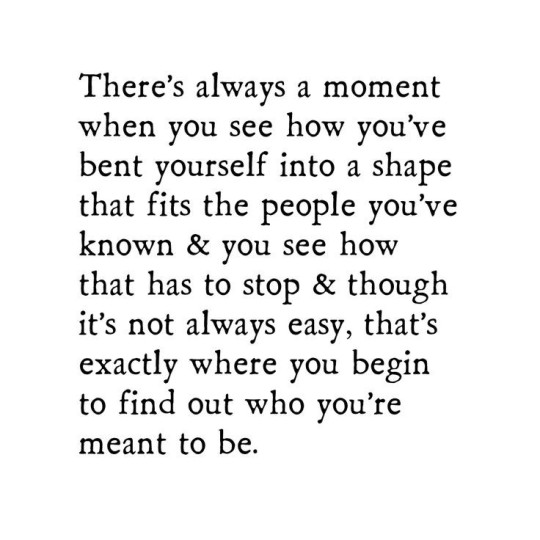#psychology of self
Text

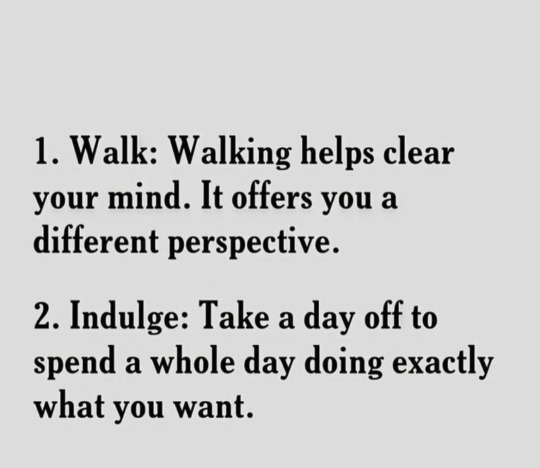
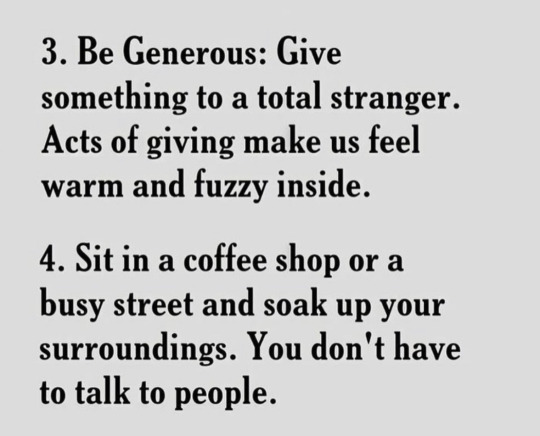
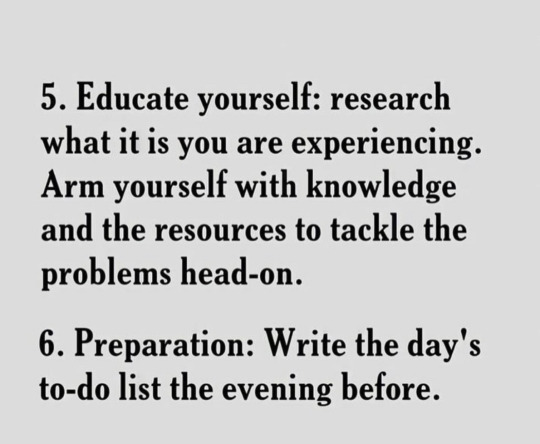
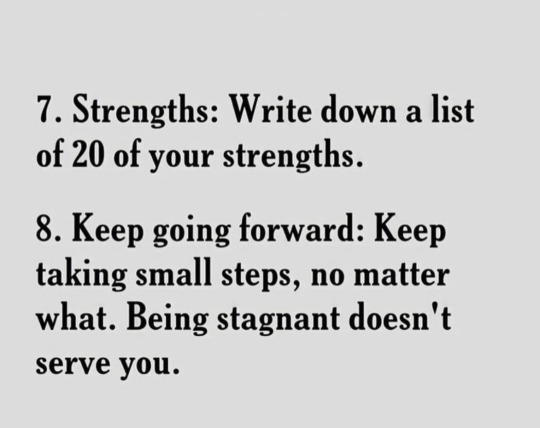
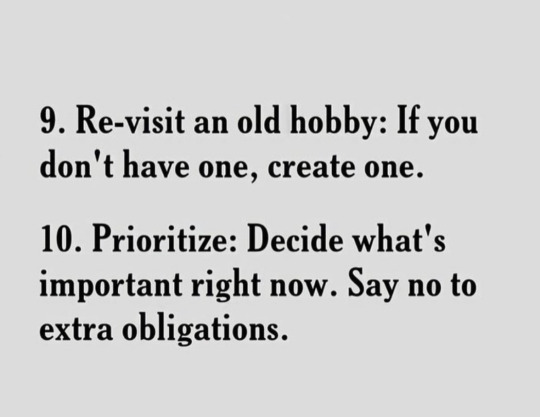
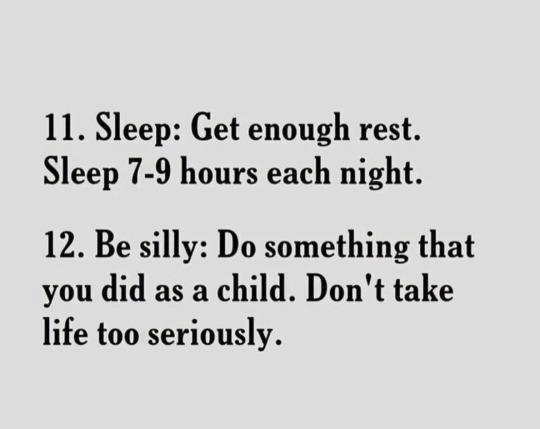
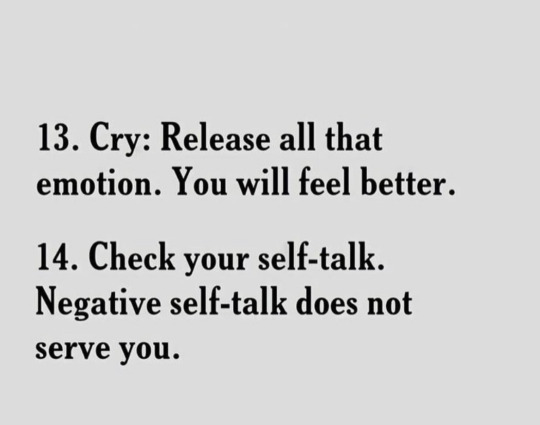

Which one is your favourite? @thoughtstherapy
#thoughtstherapy#therapy#thoughts#mythoughtstherapy#mentalhealth#mentalheathawareness#lessonslearned#self love#psychology#quotes
37K notes
·
View notes
Text
Me when… me when… the identity is horror. Who are you? Can you be replicated? Is that replication you? If someone looks just like you, acts like you and is interpreted by others as you, are they you? Do your thoughts count for anything? If everything you actually think stays in your head and never comes out then you die do people grieve you? Do you respond to your name or to any name?
#soma game#whos lila#perfect blue#us 2019#doppleganger#uncanny valley#american psycho#lake mungo#horror#psychological horror#*charlie day Pepe Silvia voice* You know your haunted by the ghost of yourself? The absence of who you are. It’s the alienation of self.#the mandela catalogue#greylock#unreality#black swan
4K notes
·
View notes
Text
Cognitive Techniques To Change Your Thoughts ✨✨
Cognitive techniques are strategies used in cognitive therapy to help you identify and change negative thoughts and beliefs. These techniques should be practiced regularly so that they become habits.
Cognitive Restructuring: This involves identifying and challenging negative or irrational thoughts and replacing them with more positive or rational beliefs.
Thought Stopping: When you notice a negative thought entering your mind, you can mentally shout "Stop!" This interrupts the thought process and gives you a chance to replace the negative thought with a positive one.
Mindfulness and Meditation: These practices help you become more aware of your thoughts and feelings in the present moment. When you observe your thoughts without judgment, you gain insight into negative patterns and choose to let them go.
Journaling: Writing down your thoughts can help you process and analyze them. With time you can identify patterns and work on changing negative thought cycles.
Positive Affirmations: Repeating positive statements can help counteract negative self talk and reinforce positive beliefs about yourself.
Evidence Collection: When faced with a negative belief, ask yourself, "What evidence do I have that supports or refutes this thought?" This can help you see things in a more balanced way.
Decatastrophizing: If you tend to imagine the worst scenario, ask yourself how likely it is to happen and what other possible outcomes there might be. This can help you view situations more realistically.
Labeling: Instead of saying "I am a failure," label the thought as "a negative thought about my abilities."
Distraction: Engaging in an activity or hobby can divert your attention from negative thoughts and give your mind a break.
Scheduling Worry Time: Instead of ruminating on worries throughout the day, set aside a specific time to process them. This can prevent constant worry and allow you to focus on other tasks.
Challenging Cognitive Distortions: Recognize and challenge cognitive distortions like black-and-white thinking, overgeneralization, and personalization.
Visual Imagery: Visualize a place or situation where you feel calm and happy. This can help shift your focus from negative thoughts.
These are very simple descriptions and examples of cognitive techniques. I listed the ones we can put into practice on our own. There are more in depth methods and practices used by doctors on different fields of study and practice. I can list, as well as add upon the information listed here.
#cognitive science#cognitive behavioral therapy#psychology#personal improvement#personal development#personal growth#self help#self improvement#self care#limiting beliefs#positive mindset#affirmations
4K notes
·
View notes
Text
When you picture yourself in your mind, do you imagine yourself precisely how you look in real life, or do you see something else (an alter ego, a person who looks differently, another being, etc.)?
When you're visualizing from the first person's pov, whose hands are you seeing?
If you have aphantasia, consider "seeing" as a metaphor for the way you think of the concept of yourself.
The main options (we put them here due to the character limit):
🪞: I only imagine myself the way I look like irl.
🪆: I imagine someone/something that represents me.
✨️: I imagine myself in multiple ways: the way I am, as another being, as an abstract concept, you name it.
Please reblog for a bigger sample size and feel free to expand on your answer in the comments / tags!
Credit to @anon (we added a few options).
#minds eye#imagination#self concept#lgbtqia#aphantasia#psychology#cognition#queer#nonbinary#agender#transgender#did system#dissociation#depersonalisation and derealisation#neurodiversity#spirituality#tumblr polls#tumbler polls
4K notes
·
View notes
Text
being present does not necessarily mean enjoying the present. it means accepting it. accepting and sitting in the current state no matter how uncomfortable and resistant you might feel. it’s accepting what Is without attaching labels or feelings to it. just observing and seeing it through.
#presence#awareness#consciousness#spirituality#oneness#psychology#mental health#wellness#holistic#acceptance#self love#healing#growth
2K notes
·
View notes
Text
The privilege of a lifetime is to become who you truly are
- Carl Jung
#shadow self#beautiful quote#shadow work#individuation#jungian psychology#psychology quotes#psychology#jungian shadow#carl jung#jung#jungian archetypes#philosophy quotes#philosophy#witchblr#archetypes#shadow work quotes#inspiring quotes
803 notes
·
View notes
Text
Healing (being healed) doesn't mean not being triggered anymore, deleting trauma from your life, no more falling into mind traps. It doesn't mean you'll be perfect once you're done (there's no such thing as "perfection"). You may still fall into old mental pattern occasionally, you may still have triggers here and there.
In fact, healing means recognizing and accepting your emotional reflexes and needs, so that you don't have to let them take over cause you know you are the one in control. It means knowing you have other options to choose from when triggers hit you, that won't have you ending up in a burnout, overthinking or feeling overwhelmed by everything. It means you know you can choose your thoughts and reactions freely, without having to depend on your traumatized mind and what it wants you to think/feel (even if to keep you safe).
(for more)
#words#healing#important#positivity#self love#thoughts#positive thinking#self healing#healingjourney#love yourself#self care#mental health#healing process#recovery#life#life lessons#psychology
2K notes
·
View notes
Text
[after obi-wan was captured by seps]
cody: general! are you hurt? how did you escape?
obi-wan: i'm fine, cody. i managed to trick the torture droid.
cody: how?
obi-wan: i convinced it i have a pain kink and would therefore enjoy any torture.
the rest of the 212th: [stunned silence]
cody: ...do you though?
#he's asking for science#reverse psychology is my favorite form of self defense#clone wars#star wars#212th attack battalion#commander cody#obi wan kenobi#codywan#incorrect clone wars#incorrect star wars#clone wars incorrect quotes
2K notes
·
View notes
Text
my parents during all of my formative years: there's something fundamentally wrong with you. you're unlovable and nobody will ever want you. you are a waste of space and shouldn't exist.
me, for the rest of my life: hm, I wonder why I feel like there's something fundamentally wrong with me and I'm unlovable and a waste of space. It's a mystery.
#abusive parents#psychological abuse#brainwashing#grooming#child abuse#aftermath of abuse#fake self perception#being fed nonsense and believing nonsense#because there's no evidence to the contrary
263 notes
·
View notes
Text
the self-concept

hellour! this is gonna be a long post!
.・。.・゜✭・.・✫・゜・。.
i was studying for my social psychology course today (for context i'm a psych major) and read something that might be helpful for everyone who's been having doubts about manifestation subconsciously being part of our everyday lives—as opposed to something made up by the internet.
the information i'm about to provide is from actual sociologists and psychologists, so this is rooted in studies. i promise i'm not about to pull info out of my ass! this is mainly just a very very brief summary of the self concept chapter we're reading about in class.
side note, i named all the researchers in case you wanna check out their work yourself! i made this post to provide insight about our self-concept and clear limiting beliefs. :)
what is self-concept?
so we hear the term self-concept a lot in the manifestation community. Neville, Edward, Sammy, Dr Joe Dispenza, bloggers on tumblr… all of them talk about it all the time. but what does it actually mean?
the self-concept refers to the total sum of beliefs that people have about themselves. it consists of cognitive molecules that social psychologist Hazel Markus called self-schemas. these are the beliefs about ourselves that guide the processing of self relevant information. but what does this actually mean?
well, self-schemas are to the self-concept what books are to a library. if someone asks about yourself, you will probably answer with something quick like: “i am a woman” or “i am a student.” those simple attributes are part of your self-schema; if we want to go deeper, body weight is also a self-schema. for people who regard weight as a crucial part of their beliefs, something simple like a gym trip with friends or buying stuff at the supermarket may trigger thoughts about the self. but if a person is aschematic (not concerned by a certain attribute) about body weight, no thoughts will pop up.
we already know that the self is a special object of our attention. whether its a thought or a song, our consciousness is like a spotlight. this means that it can shine on one object at one point in time, yet shift rapidly from one object to another and process information outside of awareness. in this spotlight, the self is at the forefront of our minds. its what's most important to us at that moment. keep this in mind for later!
to finish with the explanations, neurologist Oliver Sacks highlighted two important points about the self:
🩷 there is a private “inner” self, and an “outer” self we show to others. if we don’t self reflect to understand how were feeling, how will we understand our emotions and actions?
🩷 the self is heavily influenced by social factors.
now–what does that last point mean? well, what we think about ourselves is rooted from childhood. if we grow up hearing “you’ll never amount to anything” or “you’re my favorite child” (extreme examples i know), then that's what we’ll ingrain in our self-concept. this notion brings me to the fun stuff–the studies!
is self-concept scientifically proven?
psychologist Gordon Gallup performed a series of studies where he put animals in front of a mirror to test if they could recognize themselves. at first, they vocalized and greeted themselves in the mirror (my dog did this too when he was a pup, he would bark at his own reflection and play with it), but after several days, only great apes seemed capable of self recognition, using the mirror just like any other human would. grooming themselves, making faces… in short, they recognized themselves!
why do i bring this experiment up? well, this proves that the concept of “me” is necessary to define our self-concept. we must first recognize ourselves as Something to become Someone.
using that same study in humans, this process of self-recognition begins between 18-24 months. which means that from this point onwards we start to define Self (consciousness).
you might read this and–admittedly–think: “oh this blog post hasn’t said anything about manifestation!” true, but i want to present the basics or self-concept first to understand how it affects our daily thoughts!
there was another experiment we talked about in one of my lectures (i do not remember who performed this study specifically, but Dr Patrick Heck did one similar to this one and the results were the same), where participants were told to take a test. half of them were told to boast about themselves, and the rest were instructed to describe themselves modestly. naturally, participants who spoke highly of themselves scored higher on these tests than participants who didn’t. so… you all see where i’m going with this.
remember how i said to keep the “consciousness is a spotlight” paragraph in mind? i’ll finally touch on it with this next and last thing i’m gonna talk about (in this post at least!).
we already established that the first step in the evolution of our self-concept is the ability to recognize ourselves as Someone. the second step, however, involves social factors. sociologist Charles Horton Cooley introduced the term looking-glass self to suggest that other people serve as a mirror in which we see ourselves. and another sociologist by the name of George Herbert added that the only way to know ourselves is by imagining the opinions of our significant others and applying them to our self-concepts. sounds familiar?
how do i change my self-concept?
Neville mentioned the “mirror-self” on his conferences too. he said that one of his favorite techniques to better his Self was to imagine a loved one speaking kindly of himself. in his book Your Faith is Your Fortune, Neville wrote: “Stop trying to change the world since it is only the mirror. Man’s attempt to change the world by force is as fruitless as breaking a mirror in the hope of changing his face. Leave the mirror and change your face. Leave the world alone and change your conceptions of yourself. The reflection then will be satisfactory.”
since the self-concept is a library (our perception of Self) made out of self-schemas (books brought to us by our peers), we can see that sometimes, what we think of ourselves is just an amalgamation of beliefs implanted to us by the people in our lives. so if we were given these books we don’t like, why should we keep them in our library?
to change these negative beliefs we have about ourselves, all we have to do is replace them with positive ones. i know, i know, this is what every person who studies loa and manifestation regurgitates over and over. its nothing that hasn’t been posted to numerous blogs or twitter threads before.
however, the point about this whole post is to tell you why that is the only way to change your self-concept. if your daily thoughts are filled with phrases like: “my sp doesn’t want me” and “i’m so broke” or “what’s the point? this is all worthless anyways.” STOP. DROP. CHANGE.
journal. write your limiting beliefs in your ipad, paper, wood, stone–whatever.
use your hands to apply muscle memory. once you have them, CROSS THEM OUT!
i can’t manifest = I CAN MANIFEST EVERYTHING I WANT
i hope i shift tonight = I KNOW I SHIFT EVERY NIGHT
i wish i had money = I HAVE ALL THE MONEY I WANT AND MORE
just those small changes are enough to rewire your entire self-concept. also, exposure. the more exposure you have to something, the more insecure it will make you. if you’re having a hard time manifesting, remove all blogs, twitter accounts, and people that limit your beliefs. less exposure to negativity = less negativity reflected in your self-concept.
problems with the Self will always be there. if you remove a negative belief, another will pop up. all you can do is learn more about your “inner” self and recognize how you’re feeling. what you can do is focus on the positives, and automatically, your self-concept will change.
persist in the assumption until it becomes your reality!


.・。.・゜✭・.・✫・゜・。.
thank you all for making it this far! just in case, the book i got this information from is Social Psychology 11th Edition authored by Kassin, Fein and, H.R. Markus. there’s a lot of interesting information on this academic book that is similar to the ones Dr Joe Dispenza has written, so i could make another post like this in the future! take care!
#loa tumblr#law of assumption#loassumption#self concept#informative#social psychology#neville goddard#reality shifting#psychology#shiftblr#reya singh#shifting#edward art#quantum jumping#void state#research
252 notes
·
View notes
Text
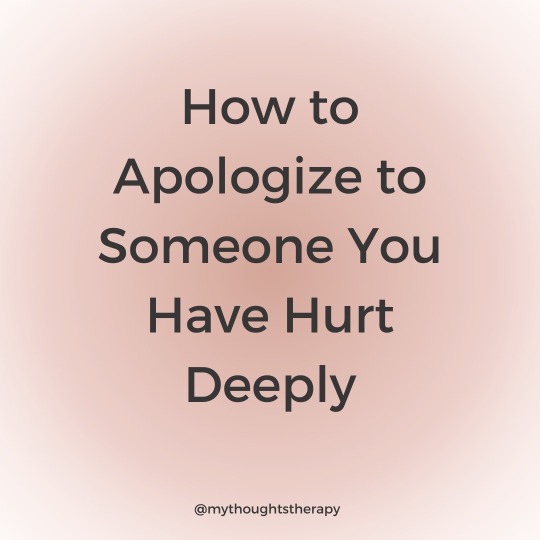
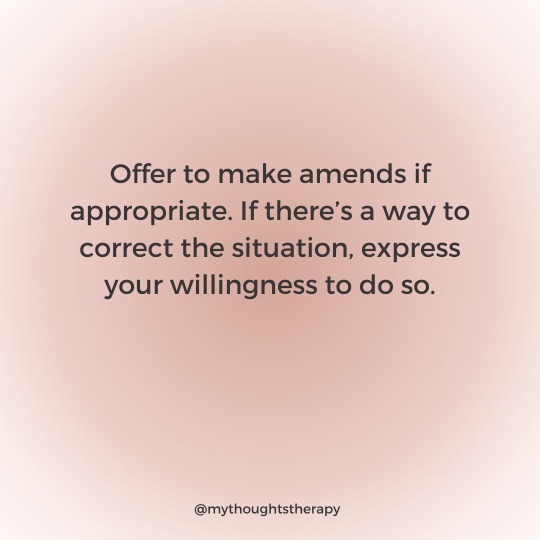
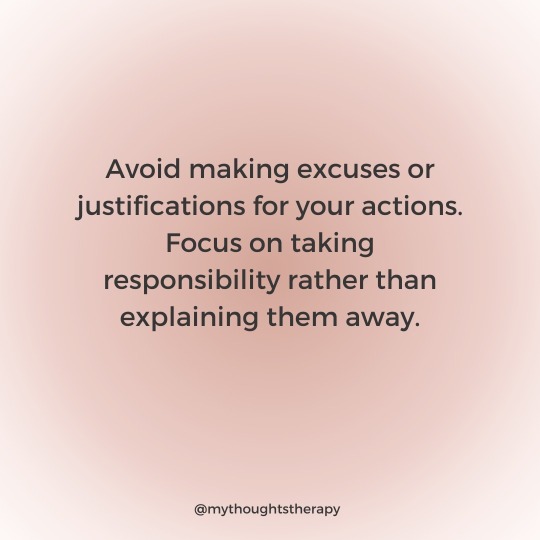
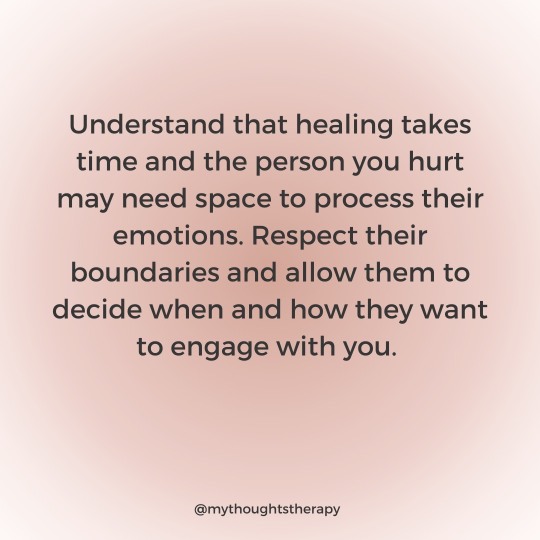


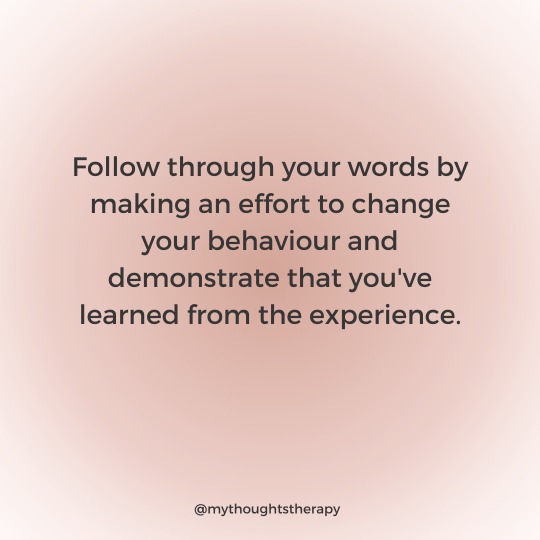
@thoughtstherapy
#thoughtstherapy#thoughts#therapy#mythoughtstherapy#mentalhealth#mentalheathawareness#self love#quotes#psychology#lessonslearned#relationships
30K notes
·
View notes
Text
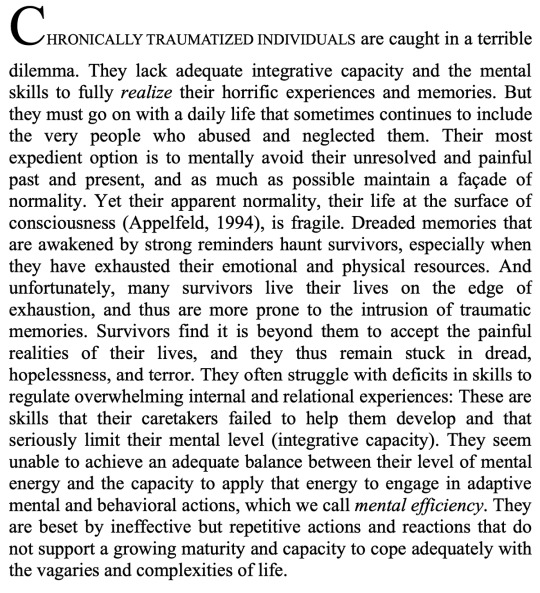
Van der Hart et al., The Haunted Self: Structural Dissociation and the Treatment of Chronic Traumatization
1K notes
·
View notes
Text

Strawberry Glaze Smoothie Recipe
This is totally inspired by Hailey Bieber's strawberry glaze skin smoothie but made for us girlies who definitely can't afford a $19 smoothie daily lol. I've noticed a difference in my skin since I started having this smoothie (almost) every day and I'm not one to gatekeep!
Ingredients
250ml almond or coconut milk (adjust for desired consistency)
1 ripe banana
80g strawberries (about 5-6 medium-sized strawberries)
1/4 avocado
2-3 dates, pitted
teaspoon maple syrup (adjust to taste)
1 serving of vanilla collagen powder (mine is from bulk - 15g)
1/2 teaspoon natural vanilla flavoring
1 tablespoon coconut cream
spoonful of strawberry syrup or glaze (optional, to taste)
Method
Peel the banana, pit the dates, and remove the stems from the strawberries.
In a blender, combine almond or coconut milk, banana, strawberries, avocado, dates, maple syrup, vanilla collagen powder, natural vanilla flavoring, and coconut cream.
Blend on high speed until all ingredients are well combined and the mixture is smooth and creamy. If the smoothie is too thick, you can add more almond or coconut milk to reach your desired consistency.
If you would like, drizzle in a spoonful of strawberry syrup at the bottom of your cup / glass before serving for extra strawberry flavour.
#high value woman#glow up era#wonyoungism#glow up tips#glow up diaries#dream girl#mindset#skincare#self love#self discipline#the art of seduction#high value mindset#glow up#hvw#diabla#dark femenine#it girl#it girl energy#that girl#becoming that girl#motivation#psychology#dark femininity#divine feminine#self care#level up journey#self improvement#leveling up#dream life#pink pilates princess
193 notes
·
View notes
Text
"In addition to the process of mourning and self-forgiveness, another aspect of self-compassion I emphasize is in the energy that's behind whatever action we take. When I advise, "Don't do anything that isn't play!" some take me to be radical, even insane. I earnestly believe, however, that an important form of self-compassion is to make choices motivated purely by our desire to contribute to life rather than out of fear, guilt, shame, duty, or obligation. When we are conscious of the life-enriching purpose behind an action we take, when the sole energy that motivates us is simply to make life wonderful for others and ourselves, then even hard work has an element of play in it. Correspondingly, an otherwise joyful activity performed out of obligation, duty, fear, guilt, or shame will lose its joy and eventually engender resistance."
--Marshall B. Rosenberg, PhD, "Nonviolent Communication: A Language of Life"
#nonviolent communication#communication#quotes#bibliotherapy#psychology#self-compassion#healing#recovery#mental health
222 notes
·
View notes
Text
Which of the following statements best describes your sense of identity?
❤️: I'm an individual with a stable, firm sense of identity. I know exactly who I am and can easily define myself.
💛: I'm an individual with a fluid sense of identity that keeps evolving over time. However, there is a "core me" that remains the same, and I have at least a vague idea of who this person is.
💚: My sense of identity is fluid, and I contain multitudes. I am not sure which me is the real me or if there is a real me at all, which causes me a bit of distress.
💜: My sense of identity is fluid, and I contain multitudes. This does not cause me distress as I don't seek to define myself.
🖤: I frequently experience being more of a 'pure awareness' than a person. Oftentimes I find myself observing the world rather than interacting with it. Any identity I take on in this life feels like a mask / a temporary role.
💙: Something else.
Feel free to expand on your choice in the tags/comments :)
Reblog for a bigger sample size!
#neurodivergent#neurotypical#self-concept#psychology#philosophy of mind#actually autistic#actually adhd#identity#ego#tumblr polls#tumbler polls
428 notes
·
View notes

